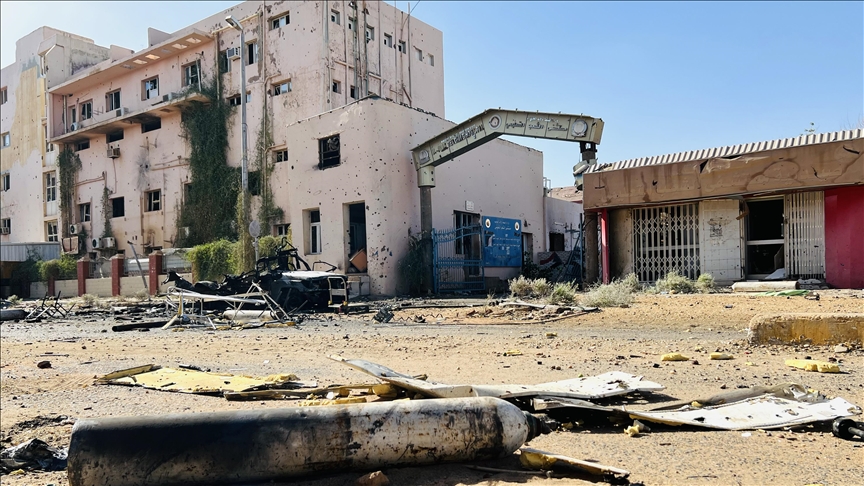- Abdullah laments diminishing global attention and concern for Sudan, urging the world to ‘remember Sudan and support the Sudanese people’
GENEVA
As the country’s devastating conflict enters its third year, the head of the Sudanese Red Crescent Society (SRCS) has sounded an urgent alarm about the growing dangers facing humanitarian workers operating under severe conditions to assist millions of vulnerable people.
In a stark assessment, Aida al-Sayed Abdullah, the secretary-general of SRCS, underscored the perilous reality faced daily by volunteers and staff working amid ongoing violence and widespread destruction.
“It’s very difficult to say that we have any insurance for the protection of the staff, of the volunteers, because the war in Sudan doesn’t respect anything – no international humanitarian law, no emblem, nothing,” Abdullah told Anadolu in an interview in Geneva.
Since fighting erupted between the Sudanese army and the paramilitary Rapid Support Forces (RSF) in April 2023, the conflict has spiraled into one of the world’s worst humanitarian crises.
While the UN and local authorities report that more than 20,000 people have been killed, research conducted by US scholars indicates the actual death toll could be as high as 130,000.
Over 13 million people have been displaced, according to SRCS, and critical infrastructure has been severely damaged or completely destroyed.
Around 80% of the country’s health facilities have also been wiped out or rendered non-functional, leaving millions without access to medical care.
Compounding the crisis, entire regions of the country face prolonged periods without electricity or clean drinking water, exacerbating the already dire humanitarian situation.
“Right now, for 14 days, there is no electricity in Sudan,” Abdullah emphasized, painting a grim picture of daily life in the country.
‘Please remember Sudan’
In recent weeks, the Sudanese army has gained ground, reclaiming significant territory previously under RSF control. Yet the humanitarian crisis continues to deepen, with countless civilians caught in the crossfire.
Despite facing immense personal risk, Abdullah emphasized that SRCS workers and volunteers remain on the ground, delivering life-saving aid across all of Sudan’s 18 states, including the heavily impacted Darfur region.
She highlighted the dedication and courage of these humanitarian workers, who often come directly from the communities they serve, assisting family members, neighbors, and friends amid ongoing hostilities.
“We have well-trained volunteers, well-trained staff … They are doing the job of evacuation of the wounded, first aid, setting up community kitchens, and serving all the community,” she said.
Abdullah also detailed how SRCS has responded swiftly to recent attacks on displacement camps such as Zamzam in North Darfur, helping evacuate displaced residents and supplying them with essential items including food, water, and infant formula.
Yet, despite their tireless work, the SRCS chief stressed that a critical lack of funding continues to hamper operations.
The funds fall far short for Sudan, she said, despite ongoing collaboration with international humanitarian organizations like the World Food Program (WFP), UNICEF, and the World Health Organization (WHO).
Abdullah also highlighted the crucial partnership between SRCS and Türkiye, which has sent two humanitarian aid ships to support Sudanese people.
She pointed out that the Turkish Red Crescent has been in the country since before the outbreak of the war, and “we are cooperating very well after the war.”
However, Abdullah lamented that global attention and concern for Sudan appear to be diminishing, even as conditions worsen on the ground.
“Nobody talks about it at all,” she said, expressing deep frustration at the apparent global indifference to the ongoing crisis.
She concluded with a heartfelt and urgent appeal: “This has been two years of suffering for the Sudanese people. Please remember Sudan and support the Sudanese people.”

